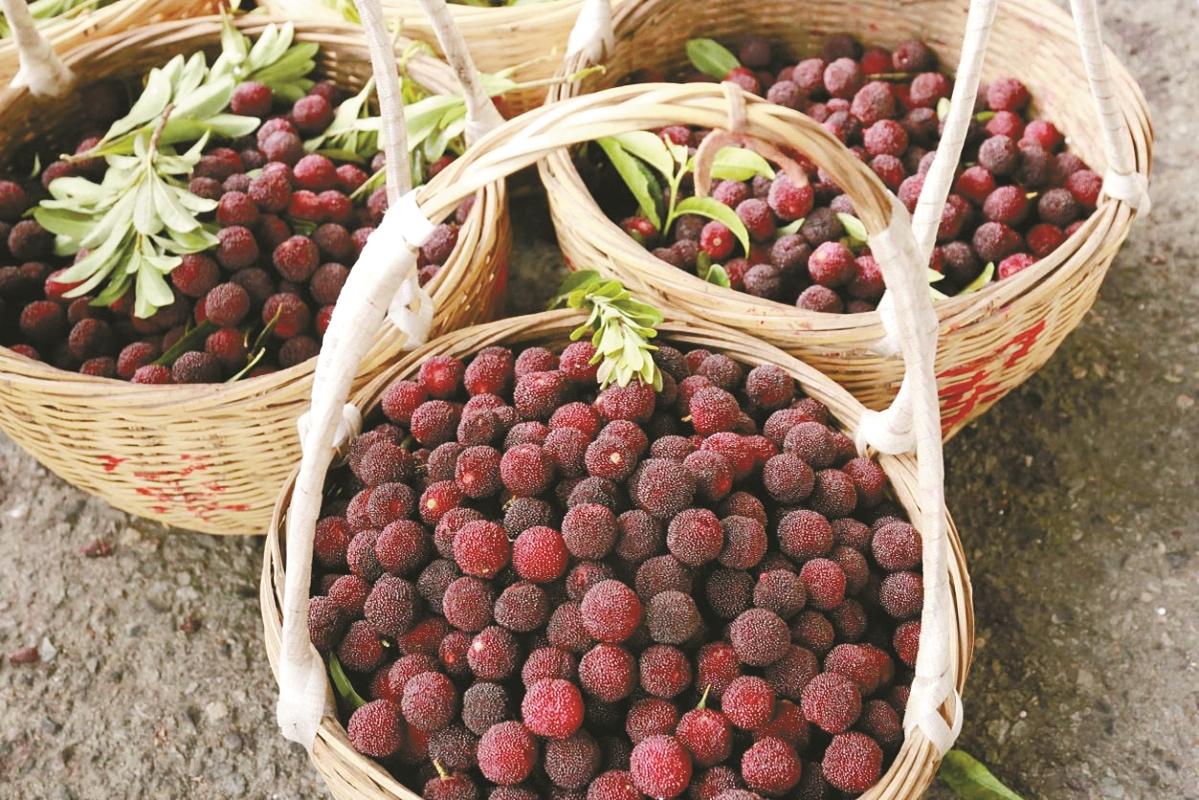By Jin Yuhan
In Yuyao, Ningbo, known as China's "waxberry capital", greenhouse waxberries are entering peak harvest season. This year, local growers are turning to smart cargo drones to tackle the region's hilly terrain and improve transport speed.
At the plantation of Yuyao Meixi Waxberry Cooperative in Zhangting Town, farmers attached a basket of waxberries weighing about 25 kilograms to a cable beneath the drone, at a loading station atop a 120-meter hill. Its propellers whirring, the drone took off and followed a preset flight path over the forested slopes, delivering the fruit to a cold-chain packaging center at the hill's base in just three minutes.
With a maximum payload capacity of nearly 50kg, the drone covers each kilometer in just 5-6 minutes. It also reduces damage and moisture loss caused by jostling during transit, preserving the quality of the delicate fruit.
"Before this, everything had to be carried by hand," said Yu Huabiao, who oversees operations at the cooperative. "Workers had to trek 1-2 kilometers for closer plantations, or nearly 5 kilometers for the ones further away. During the rainy season, the paths became slippery and dangerous. Now, drone delivery is both safe and highly efficient."
Sun Quan, head of the Agricultural Mechanization Division at Yuyao's Agriculture and Rural Affairs Bureau, highlighted the benefits of low-altitude drone transport. "A single drone can replace six to seven laborers, and because the berries are jostled less during flight, the fruit stays in better condition," he said.
Yuyao has about 6,667 hectares of waxberry plantations, with over 40 large-scale growers managing plots exceeding 3.3 hectares each. Together, these hillside orchards stretch across the Yaojiang River basin.
Because most of the plantations are spread across steep hillsides, using drones offers a practical solution to the challenge of getting freshly picked fruit down the mountain quickly and safely, cutting labor costs and improving efficiency for growers.
Looking ahead, Sun said Yuyao plans to roll out demonstration zones and organize drone operating teams in other waxberry-producing towns. "We want to promote this model more widely and use technology to give a traditional industry a modern upgrade," he said.



